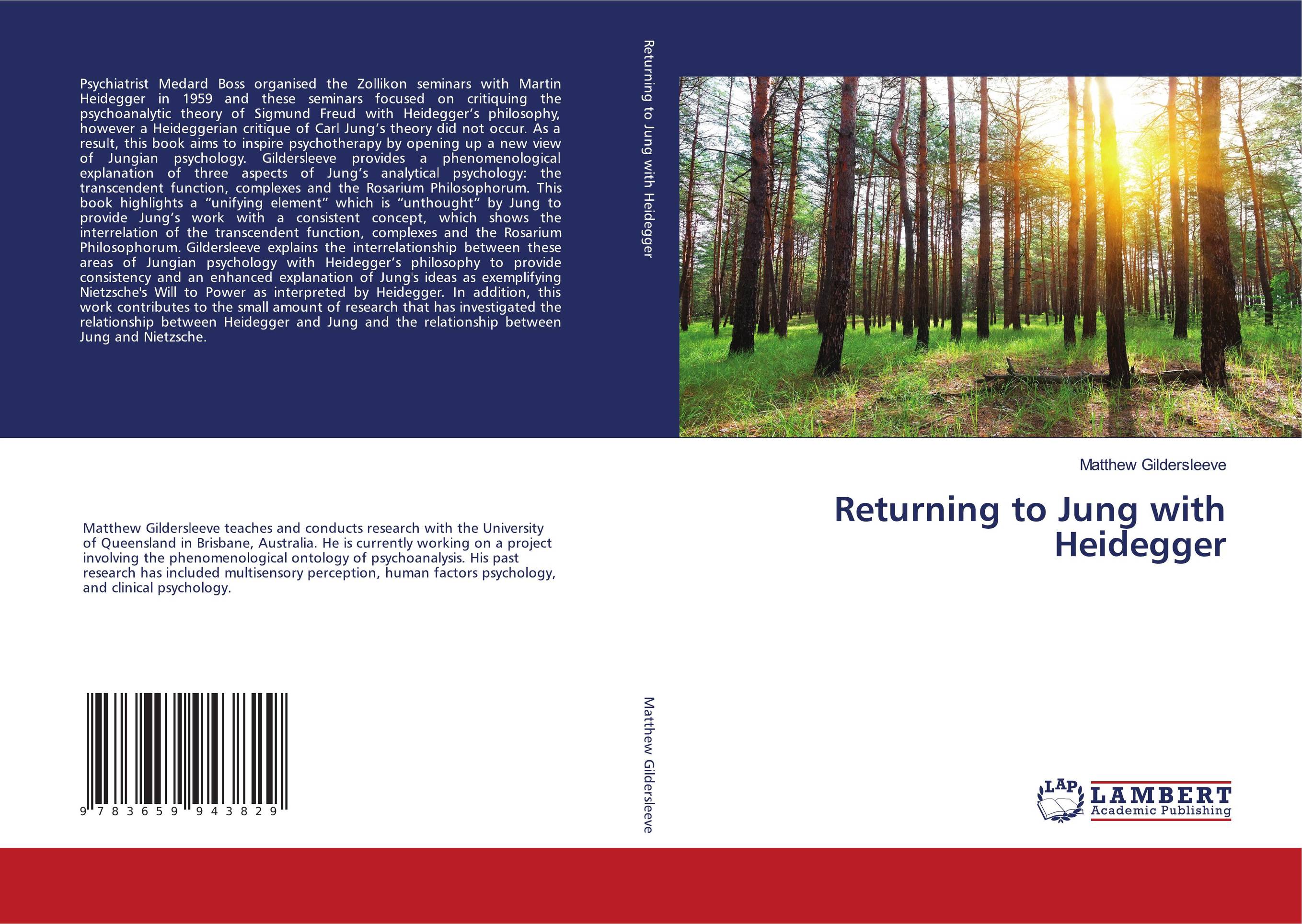| Поиск по каталогу |
|
(строгое соответствие)
|
- Профессиональная
- Научно-популярная
- Художественная
- Публицистика
- Детская
- Искусство
- Хобби, семья, дом
- Спорт
- Путеводители
- Блокноты, тетради, открытки
Returning to Jung with Heidegger.

В наличии
| Местонахождение: Алматы | Состояние экземпляра: новый |

Бумажная
версия
версия
Автор: Matthew Gildersleeve
ISBN: 9783659943829
Год издания: 2016
Формат книги: 60×90/16 (145×215 мм)
Количество страниц: 232
Издательство: LAP LAMBERT Academic Publishing
Цена: 43838 тг
Положить в корзину
| Способы доставки в город Алматы * комплектация (срок до отгрузки) не более 2 рабочих дней |
| Самовывоз из города Алматы (пункты самовывоза партнёра CDEK) |
| Курьерская доставка CDEK из города Москва |
| Доставка Почтой России из города Москва |
Аннотация: Psychiatrist Medard Boss organised the Zollikon seminars with Martin Heidegger in 1959 and these seminars focused on critiquing the psychoanalytic theory of Sigmund Freud with Heidegger’s philosophy, however a Heideggerian critique of Carl Jung’s theory did not occur. As a result, this book aims to inspire psychotherapy by opening up a new view of Jungian psychology. Gildersleeve provides a phenomenological explanation of three aspects of Jung’s analytical psychology: the transcendent function, complexes and the Rosarium Philosophorum. This book highlights a “unifying element” which is “unthought” by Jung to provide Jung’s work with a consistent concept, which shows the interrelation of the transcendent function, complexes and the Rosarium Philosophorum. Gildersleeve explains the interrelationship between these areas of Jungian psychology with Heidegger’s philosophy to provide consistency and an enhanced explanation of Jung's ideas as exemplifying Nietzsche's Will to Power as interpreted by Heidegger. In addition, this work contributes to the small amount of research that has investigated the relationship between Heidegger and Jung and the relationship between Jung and Nietzsche.
Ключевые слова: Heidegger, Jung, Nietzsche, Phenomenology, Psychoanalysis



